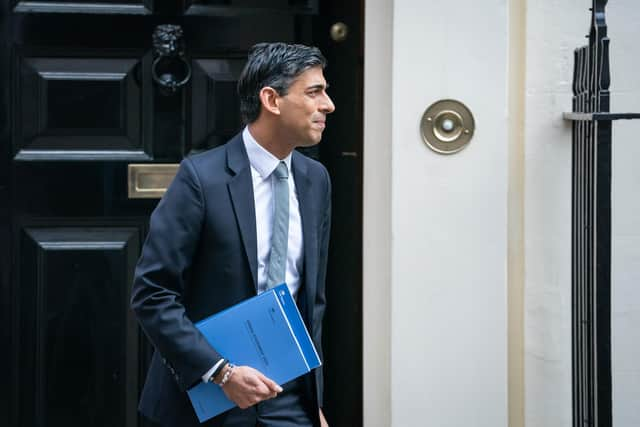Spring statement: Chancellor increases Employment Allowance and pledges to improve R&D reliefs
Mr Sunak increased the Employment Allowance – a relief which allows smaller businesses to reduce their employers National Insurance contributions bills each year – from £4,000 to £5,000.
The Government said the cut is worth up to £1,000 for half a million smaller businesses and starts in two weeks’ time. As a result, 50,000 of these businesses will be taken out of paying NICs and the Health and Social Care Levy, taking the total number of firms not paying NICs and the Levy to 670,000.
Advertisement
Hide AdAdvertisement
Hide AdMr Sunak told the Commons: “The Employment Allowance cuts small businesses’ tax bills, making it cheaper to employ workers. Once again, it is this Government delivering for British business.”


The Chancellor also committed to improving R&D (research and development) reliefs.
In his speech, Mr Sunak said: “Over the last fifty years, innovation drove around half the UK’s productivity growth. But since the financial crisis, the rate of increase has slowed more than in other countries. And our lower rate of innovation explains almost all our productivity gap with the United States. Right now, we know that the amount businesses spend on R&D as a percentage of GDP is less than half the OECD average.
“And that is despite us spending more on tax reliefs than almost every other country. Something is not working.”
Advertisement
Hide AdAdvertisement
Hide AdMr Sunak said the Government will reform R&D tax credits so they are effective and better value for money.
He added: “We’ll expand the generosity of the reliefs to include data, cloud computing, and pure maths. And we’ll consider, in the autumn, whether to make the R&D expenditure credit more generous.”
Carolyn Frank, the Federation of Small Businesses Development Manager for York and North Yorkshire, said that while the rise in Employment Allowance is a step in the right direction, she believed local FSB members will think that the statement overall fell short of what they feel they need from The Chancellor.
Ms Frank added: “The Chancellor did acknowledge that support is needed towards small businesses, and we will be looking to the longer term tax policies, and into more details on R&D tax credits, the Help to Green scheme, and Apprenticeship levy to make sure our members get both the real, and the urgent, support they need.”
Advertisement
Hide AdAdvertisement
Hide AdFSB National Chair Martin McTague said: “We are very pleased to see the Chancellor adopting our top ask for this Spring Statement: uprating the Employment Allowance to help small employers with national insurance costs.”
Comment Guidelines
National World encourages reader discussion on our stories. User feedback, insights and back-and-forth exchanges add a rich layer of context to reporting. Please review our Community Guidelines before commenting.
